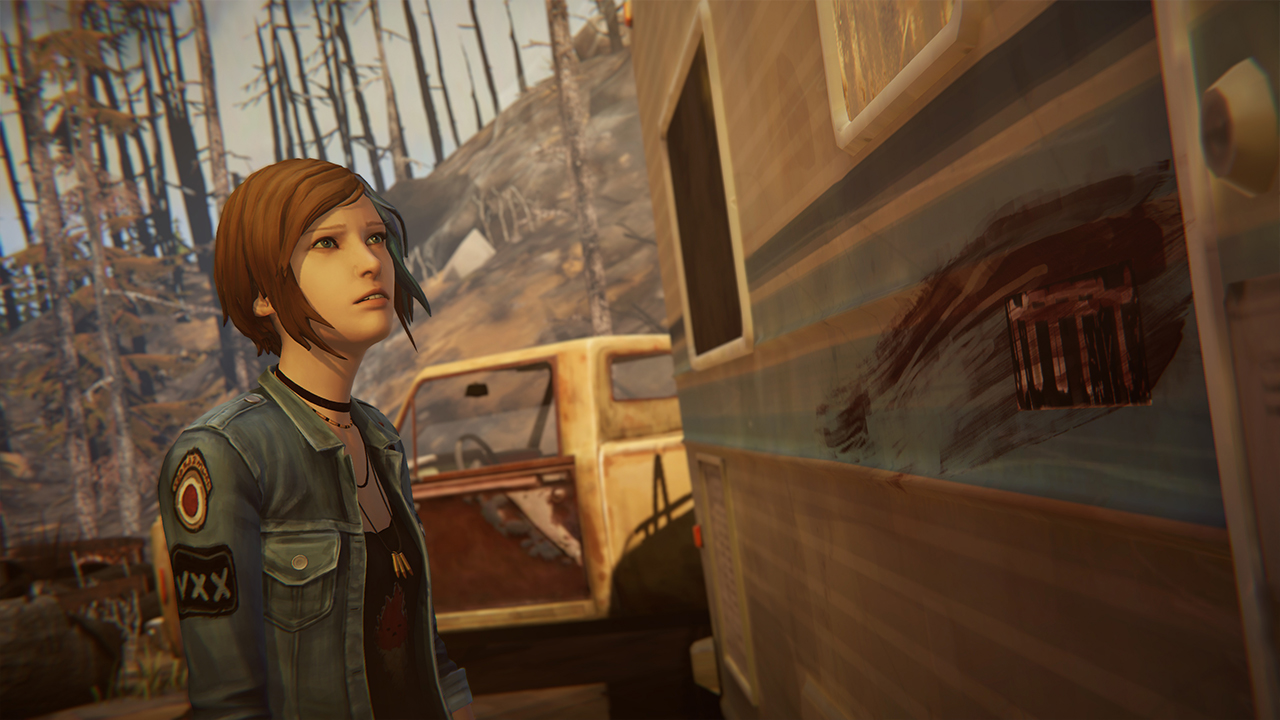GamesRadar+ Verdict
Life is Strange: Before the Storm is a brilliantly crafted prequel series that does well to highlight just how integral Rachel Amber is to the whole series’ overarching story.
Pros
- +
Better grounded for its lack of the supernatural
- +
Fully nuanced characters that you’ll fall in love with all over again
- +
About 100 times better than your average prequel
- +
Music is continually impeccable
Cons
- -
Some story strands feel forced
- -
Episode Three feels a little rushed
Why you can trust GamesRadar+
Anyone who played the original Life is Strange will know just how much of an impact Rachel Amber had on Arcadia Bay. From the missing posters splattered all over town to how she hung like the Ghost of Christmas Past over Chloe. Because of all that it was brave for developer Deck Nine to build a prequel series called Life is Strange: Before the Storm, that would explain just what made her character so special. But over the course of only three episodes, Deck Nine has done that.
Of course, the full range of Rachel’s identity hinges on Chloe, and by extension you and the actions you make, conversations you have, and direction you take. After all, Before the Storm is a love story if you want it to be, but it can also be the tale of a teenage friendship that occurs at a pivotal point in both the young girls’ lives. For me, it was absolutely a love story, especially as we all know it eventually becomes a tragedy.
It seems like the original Life is Strange looms over the events of Before the Storm like a shroud. Deck Nine thankfully makes the decision to ensure this is its own story. Yes, it’s strongly connected to the events of Life is Strange, but that shouldn’t have a bearing on how you feel about Chloe and Rachel in these moments.
Like the original series, Before the Storm is a fairly hands-off game. You won’t be engaging in any major action scenes, instead all your energy is spent choosing the paths to take through various branching narratives, and having to deal with the consequences and the fallout of your actions and words. Unlike the original game, which uses Max’s ability to rewind time as a core gameplay mechanic, you’re free from the realms of the supernatural here. The only gameplay gimmick in sight is Chloe’s ability to ‘backchat’. Using her rebellious, fiery tongue, she can attempt to talk her way out of situations. It’s probably the least effect part of Life is Strange: Before the Storm, as it gets in the way of the otherwise brilliant branching storytelling that Deck Nine has crafted.
Being able to see each ripple of your decision-making echoed through all three chapters, even in tiny moments, is seriously impressive and each one seems to be acknowledged far more than in the original series. Obviously I won’t go into the hows and the whys here, but I’ve already started playing through the entire thing again and it’s clear how deep the ripples go in Before the Storm. Each episode’s conclusion is more earth-shattering than the last and that’s partly down to the fact it’s you that got them all there.
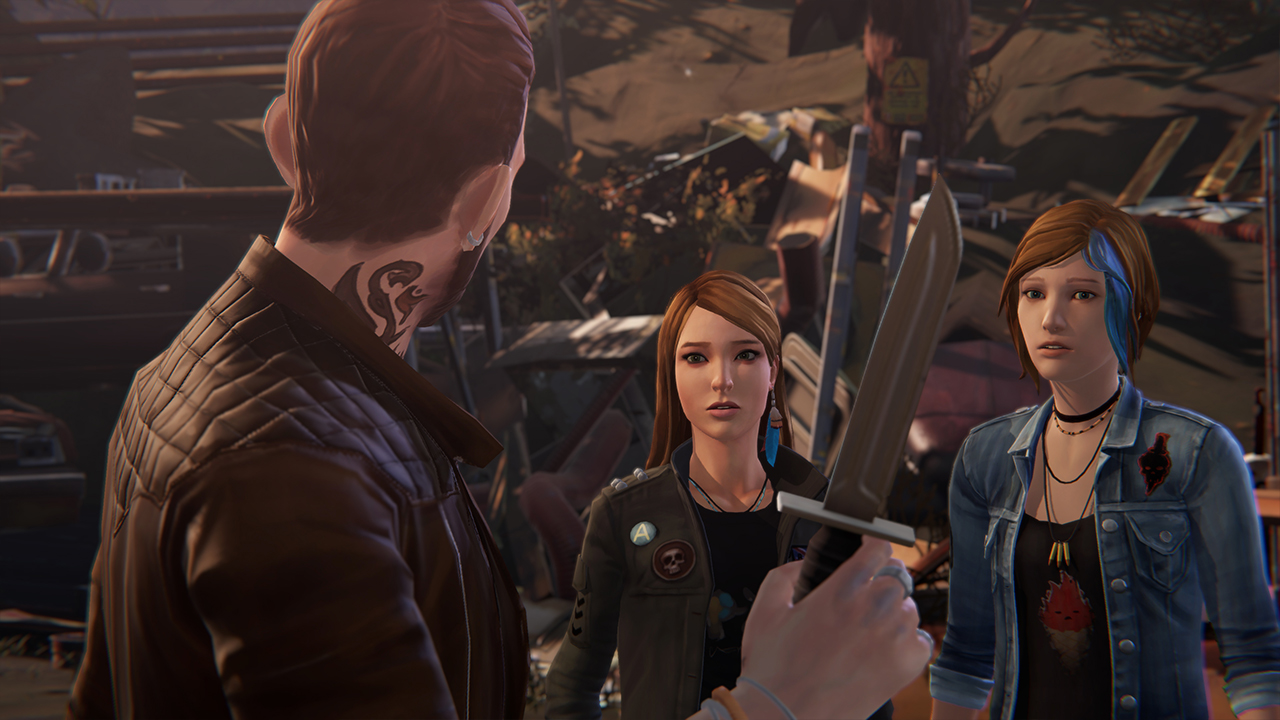
Episode Three - Hell is Empty
Episode Three - Hell is Empty - picks up from the absolute bombshell dropped at the end of Episode Two about Rachel’s birth mother. And for someone who’s just written an entire feature on how games have inspired me to find my own birth parents, it was quite the emotional rollercoaster. For Before the Storm it’s a stunning narrative mechanic for showing the other side to Rachel. The one who’s the star of the stage; the social butterfly; the cool kid with the awesome hair. Suddenly she’s even more fragile than she’s been before. In fact, she’s so fragile that this episode isn’t really about her. It’s about Chloe’s love for her, and the things you do for love when you’re so blinded by its brightness. Ultimately, it’s also about trust. The end sees you having to make one last choice - the decision whether to tell Rachel the truth about her family or save her from it - and the pain for the player comes from knowing that there’s really no right choice to make.
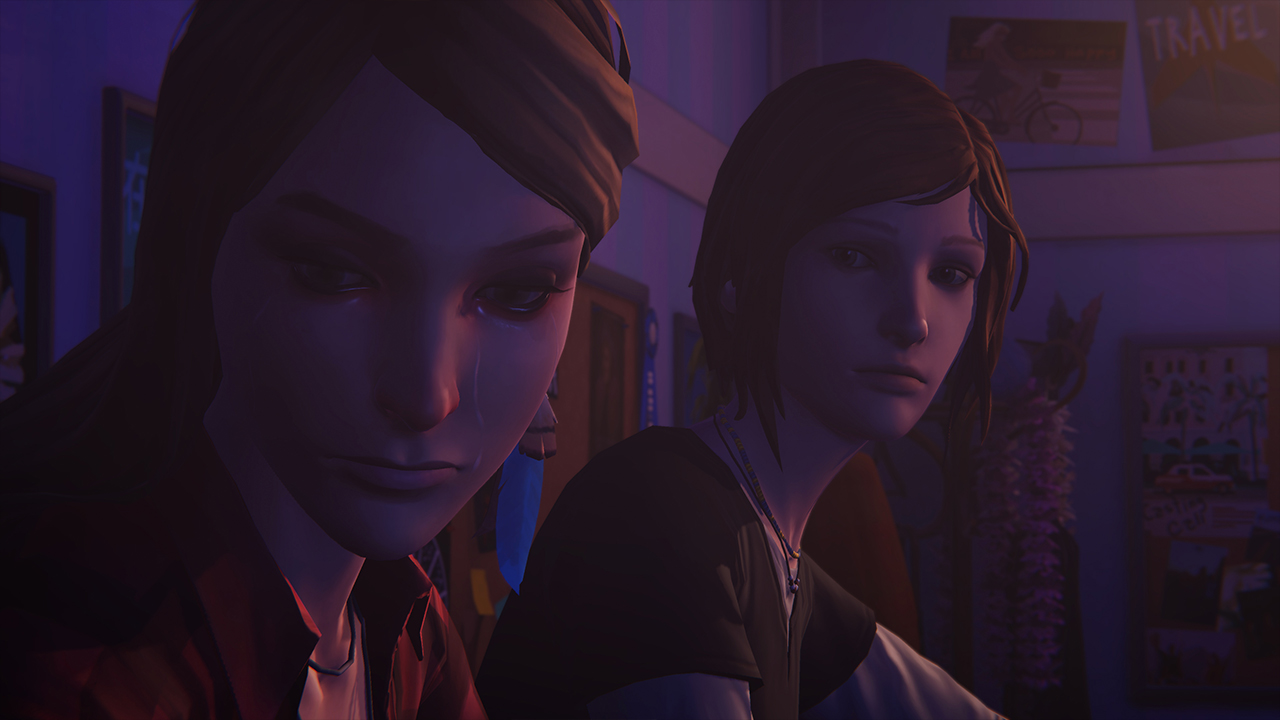
But because it’s desperately trying to wrap up so many loose ends, the pacing of this third episode can sometimes feel a little off. You want the episode to focus on Chloe and Rachel, but other things attempt to get in the way. Eliot’s particularly problematic. It’s been clear since the first episode of Life is Strange: Before the Storm that he’s got a bit of a thing for Chloe and it’s only in this third episode that things really come to a head.
For some reason, in amongst everything else that’s going on with Chloe and Rachel’s search for answers, Eliot goes a bit bonkers. His sudden change in story arc emerges like a story Deck Nine would have quite liked to develop further if series length had allowed, but instead feels feels forced and awkward and disappears almost as soon as it starts.
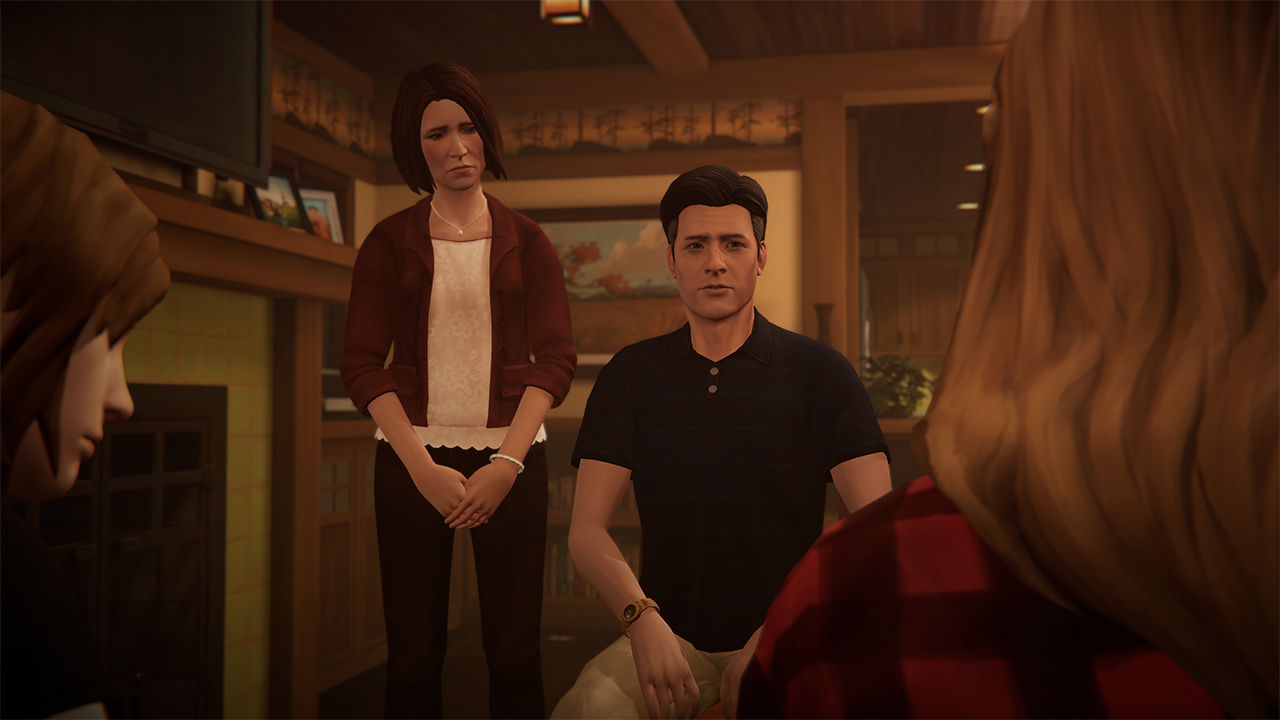
Thankfully that strange scene is the only thing that jars about episode three of Before the Storm. It can still feel a little too disconnected from the player, sometimes playing out more as a sporadically interactive movie than an actual game thanks to long periods of player inactivity. But there’s no denying that the story Deck Nine has crafted is utterly beautiful and in some ways this is better than the original. Both Chloe and Rachel are brilliantly complex, nuanced characters that feel within the realms of what Dontnod Entertainment created with the original series.
In a way, this earlier version of Chloe is more relatable than the girl we know from the original. By doing away with the majority of the supernatural, time-controlling elements, and focusing on the complexities of being a teenage girl in love for the first time, and dealing with the death of a parent, it feels like a purer experience. Emotions, interactions and personalities are allowed to speak for themselves and don’t ever feel manipulated - even if you go through with Chloe’s backchat dialogue options.

Overall though, anyone with a vague interest in Life is Strange owes it to themselves to play Before the Storm. Deck Nine has created a prequel series that’s more than worthy to be part of Life is Strange’s bigger whole, and by leaving out almost all of the supernatural elements to focus on the relationship that builds between Rachel and Chloe, and how it changes both their lives, it makes the entire experience feel deeper and more human than the original series.
More info
| Genre | Adventure |
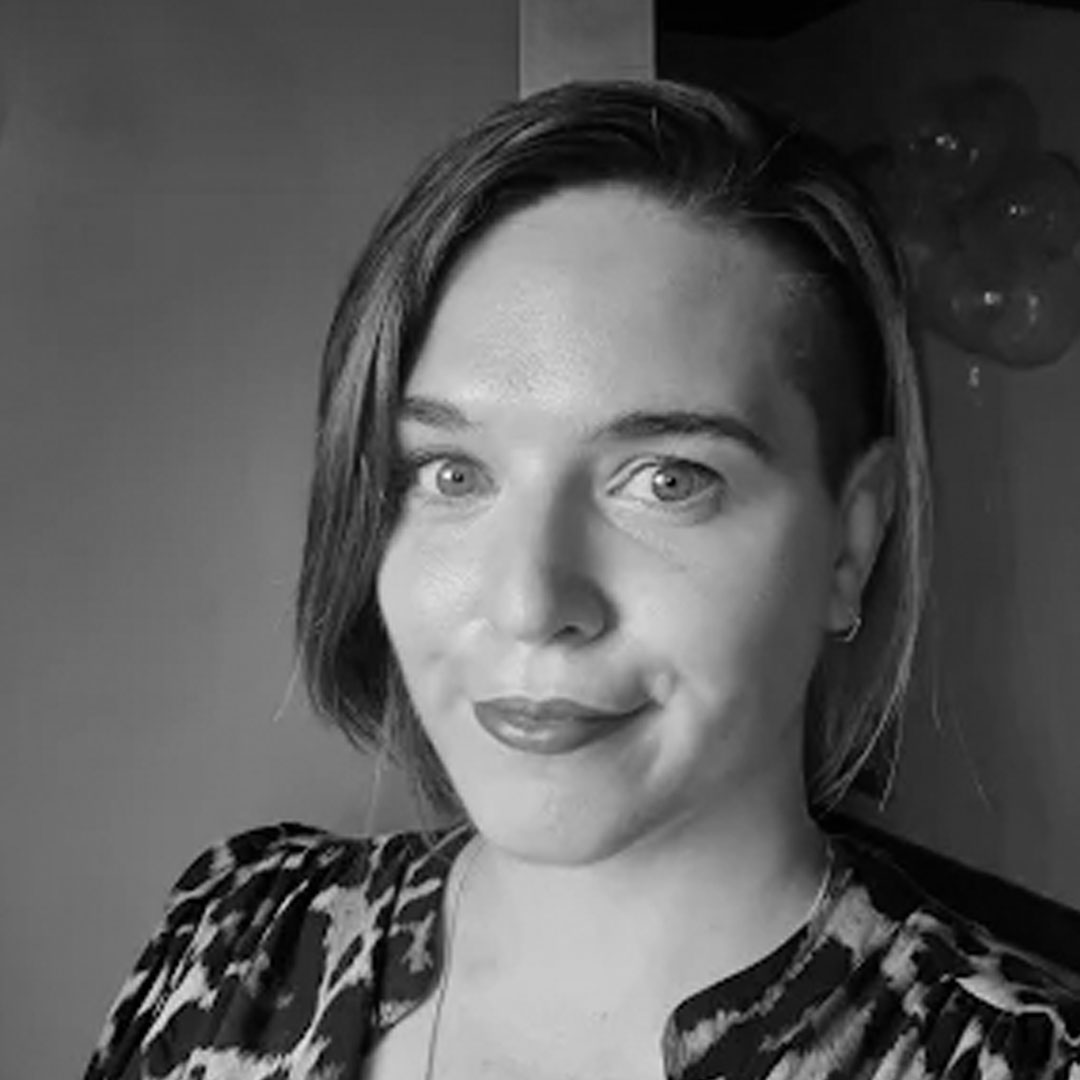
Sam Loveridge is the Brand Director and former Global Editor-in-Chief of GamesRadar. She joined the team in August 2017. Sam came to GamesRadar after working at TrustedReviews, Digital Spy, and Fandom, following the completion of an MA in Journalism. In her time, she's also had appearances on The Guardian, BBC, and more. Her experience has seen her cover console and PC games, along with gaming hardware, for a decade, and for GamesRadar, she's in charge of the site's overall direction, managing the team, and making sure it's the best it can be. Her gaming passions lie with weird simulation games, big open-world RPGs, and beautifully crafted indies. She plays across all platforms, and specializes in titles like Pokemon, Assassin's Creed, The Sims, and more. Basically, she loves all games that aren't sports or fighting titles! In her spare time, Sam likes to live like Stardew Valley by cooking and baking, growing vegetables, and enjoying life in the countryside.
